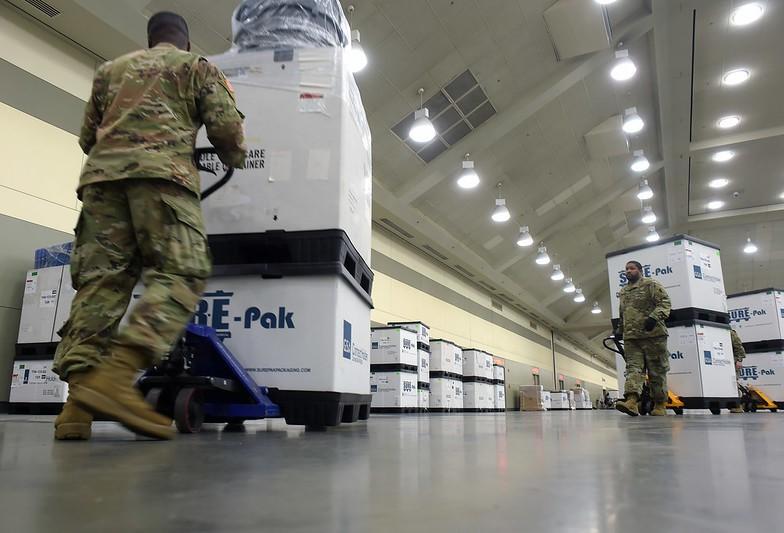In August 2019, the US government identified that 72% of active pharmaceutical ingredient (API) manufacturers were located outside the United States, with China accounting for 13% alone.
The question of foreign reliance wasn't a new one, though—Department of Defense (DoD) Instruction 4140.01, effective Mar 6, 2019, had already tasked the DoD with mitigating the risks of pharmaceutical supply chain disruptions. Now, about two and a half years later, the Pentagon's inspector general evaluated the progress and reported that, while some efforts were made, more could be done.
"The worst that could happen is we could have military personnel at risk from either infectious diseases or for either chemical warfare or other things and not have the supplies to have them prepared to properly do battle," said Stephen W. Schondelmeyer, PharmD, PhD, co-principal inspector of the University of Minnesota's Center for Infectious Disease Research and Policy (publisher of CIDRAP News) Resilient Drug Supply Project, in CNBC's coverage of the report.
Room for improvement an transparency, monitoring
Overall, the office found that the Defense Logistics Agency (DLA), the largest DoD agency and its main purchaser, had begun assessing the risk but did not fully develop mitigation strategies for it.
For instance, the DoD had processes to respond to pharmaceutical shortages only after they were identified or the pharmaceutical became unavailable. And, while the DLA had a medical contingency file of critical pharmaceuticals (and quantities) needed for military operations, the Defense Health Agency (DHA) had not shared a corresponding list for military treatment facility operations—the authors noted that "just-in-time" ordering and low stock inventory was still the norm for these two areas.
The department also identified that not knowing the country of origin for finished drug products and APIs made understanding the supply chain more difficult; however, it had not made many attempts to compensate for this. In addition, the report pointed to the DLA's monitoring of prime vendors' responsiveness during peacetime and stated that, contrary to DLA opinion, this was not a sufficient substitute for testing contingency contracts because peacetime is not congruent with war readiness scenarios.
"Since the DoD is a consumer of the US commercial pharmaceutical market, which is dependent on ingredients from foreign suppliers, these potential drug shortages could ultimately compromise the standard of care for service members and DoD beneficiaries," the authors write. "Implementing measures to mitigate the risks of a pharmaceutical supply disruption would provide a defensive capability and mitigate public health and national security risks."
More authority, guidance needed
The authors recommended that various entities in the department develop and issue guidance around DoD supply risk management; create authority for the government to require pharmaceutical manufacturers to include API and final drug product country-of-origin information; create a chartered work group to assess risk and critical products; and make a policy outlining the allocation of scarce pharmaceutical resources.
The report has already been reviewed by the DoD's management, and besides revising certain recommendations, all recommendations and their sub-parts were considered resolved except for 1b and 1c, which were unresolved, and 3a, which was closed. Resolved means that management has agreed to implement the recommendation or has proposed actions to address it, with an update in 90 days from the report.
Recommendations 1b and 1c were considered unresolved because the tasks were redirected to the under secretary of defense for acquisition and sustainment. Through a whole-of-government perspective, the under secretary is to coordinate with the US Department of Health and Human Services to prioritize additional granted authority for the Food and Drug Administration to collect data for supply chain resilience.
The under secretary is also supposed to initiate federal legislation that mandates country-of-origin labeling on pharmaceutical products' lots and packaging. The authors will follow up with the DoD in 30 days regarding both matters.
The closed recommendation (3a) asked the director of the DLA to establish written agreements with its prime pharmacy vendors to keep transaction information in accordance with the Drug Supply Chain Security Act.
As the situation currently stands, the authors write, "Senior officials from the [DLA] Medical Pharmaceutical Prime Vendor Division stated that if some countries decide to stop producing APIs or shipping them to domestic manufacturers in the United States, the results could be catastrophic for the entire U.S. pharmaceutical industry."























